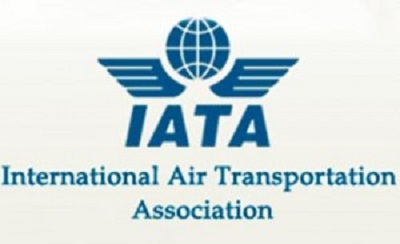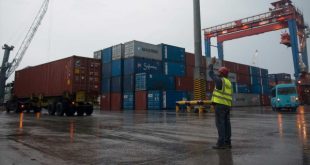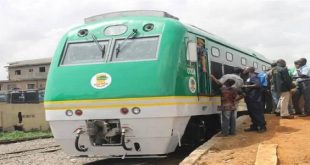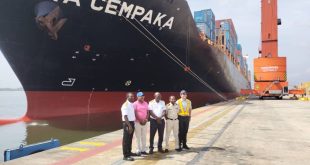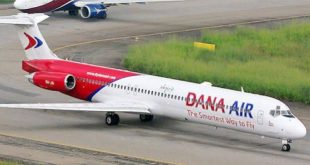The International Air Transport Association (IATA) has identified some of the problems affecting airlines in Africa to include blocked funds and denied access to foreign exchange in Africa describing them as the increasing problems for foreign airlines.
The Director-General of IATA, Alexandre de Juniac in a statement said in nine African countries, international carriers are unable to repatriate their foreign currency earnings, while locally-based airlines experience difficulties making on-time foreign currency payments to their suppliers and business partners.
“Angola and other countries blocking funds are undergoing significant economic challenges. But blocking airlines’ funds is not the answer. It is in everybody’s interest to ensure that airlines are paid on-time, at fair exchange rates and in full,” explained de Juniac.
The Central Bank of Nigeria (CBN) had in August last year released $425 million out of $600 million trapped funds belonging to foreign airlines that flies into the country.
The funds accrued from ticket sales of foreign airlines which had since been repatriated to their home country.
For two years, the problem had persisted due to paucity of foreign exchange.
The clearing house for over 280 global airlines stated that it is working closely with the governments of Angola and other countries on ways to make these withheld funds available, adding that it welcomes the commitment by Angola’s National Bank to work with IATA to find a practical solution to release blocked funds,” he added.
This is coming as the association forecasts a trebling in the size of Angola’s air transport market to 7.1 million passengers a year by 2036 at the present forecast annual growth rate of 6.7 per cent.
However, even faster growth with greater socio-economic benefits for Angola could be achieved if the country opens up its market and prioritizes its participation in the continent-wide connectivity efforts, unblocks funds, consults with industry to improve infrastructure and maintains world class safety standards.
“Aviation is vitally important to Africa. It currently supports 6.8 million jobs and contributes $73 billion in GDP across the continent. It connects people and businesses, enables trade and tourism, reunites families and friends, carries products to markets and vital medicines and aid to communities where they are needed.
“Angola needs to work with industry to ensure that it is prepared to reap the future benefits of increased air connectivity,” said Alexandre de Juniac IATA’s Director General and CEO, at IATA’s Aviation Day in Luanda, Angola”.
De Juniac identified four pressing concerns in Africa which governments and industry stakeholders must address for a healthy and strong aviation system.
He listed the concerns as connectivity, efficient Infrastructure expansion, and safety.
The second priority is improving connectivity, adding enhanced connectivity will stimulate demand and competition, making air travel more affordable and in doing so, enable higher volumes of trade, tourism and commerce between Angola, her sister nations and the rest of the world.
IATA disclosed that its recent study found that if 12 key African markets, including Angola, were opened up, extra 155,000 jobs and $1.3 billion in annual GDP would be created in those countries. In Angola, the benefit would be an extra 531,000 passengers taking to the skies, the creation of 15,300 new jobs and the generation of $137 million in additional GDP.
IATA welcomes the imminent launch of the Single Africa Air Transport Market (SAATM) by the African Union later this month.
“By implementing the SAATM, Africa has the potential for remarkable social and economic transformation, but it is up to the industry and every African government to fully embrace and put the project into action, if the full benefits of aviation are to be realized across Africa. We urge Angola to join the SAATM and not lose out on the many opportunities of a connected continent,” said de Juniac.
He reiterated that modern infrastructure is critical for aviation to deliver its economic and social benefits, stressing that Luanda’s new international airport will play a major role; however consultation is needed to ensure that it is aligned with airline requirements.
Airlines need airports that match demand with capacity while delivering the functionality, levels of service, and efficiency to support operations and customer experience requirements now and in the future.
He noted that all of this must be delivered in a cost-effective manner, hinting that unnecessary capital investment leads to higher costs for airlines, which translate into higher costs for passengers, resulting in reduced demand for air travel.
Safety is critical and has always been a challenge for Africa. With governments and industry working together significant improvements have been achieved. In 2016, for example, there were no fatal accidents or hull losses involving sub-Sahara African scheduled airline services. To sustain and further improve this safety performance, continuous effort based on global standards and best practices is needed.
Speaking further on safety, global standards underpin aviation safety. A good example is the IATA Operation Safety Audit (IOSA).
 MMS PLUS NG – Maritime, Aviation, Business, Oil and Gas News Online Newspaper with coverage in Maritime, Oil and Gas, Aviation, Power and Energy as well as Financial News
MMS PLUS NG – Maritime, Aviation, Business, Oil and Gas News Online Newspaper with coverage in Maritime, Oil and Gas, Aviation, Power and Energy as well as Financial News

